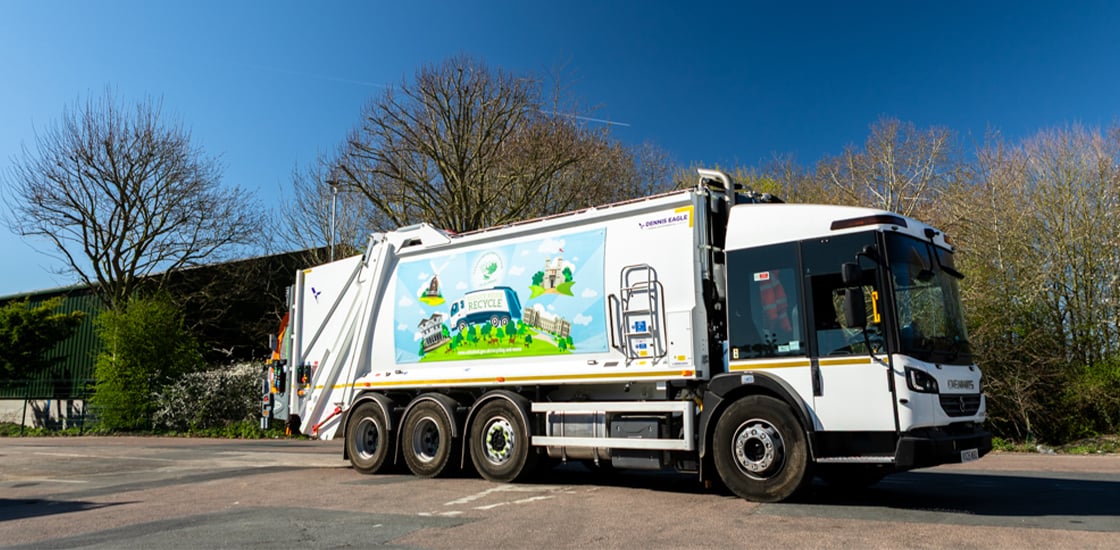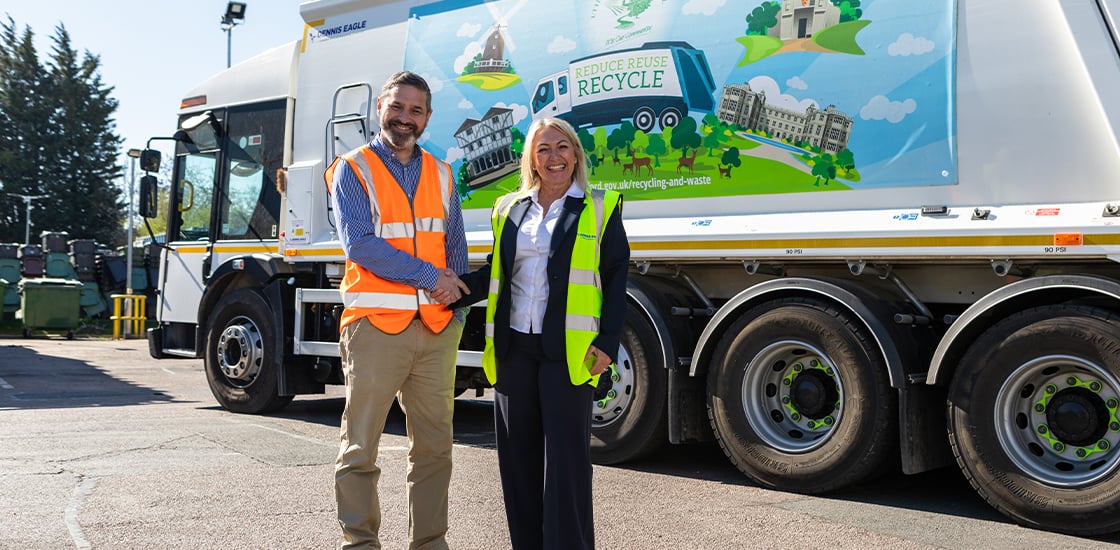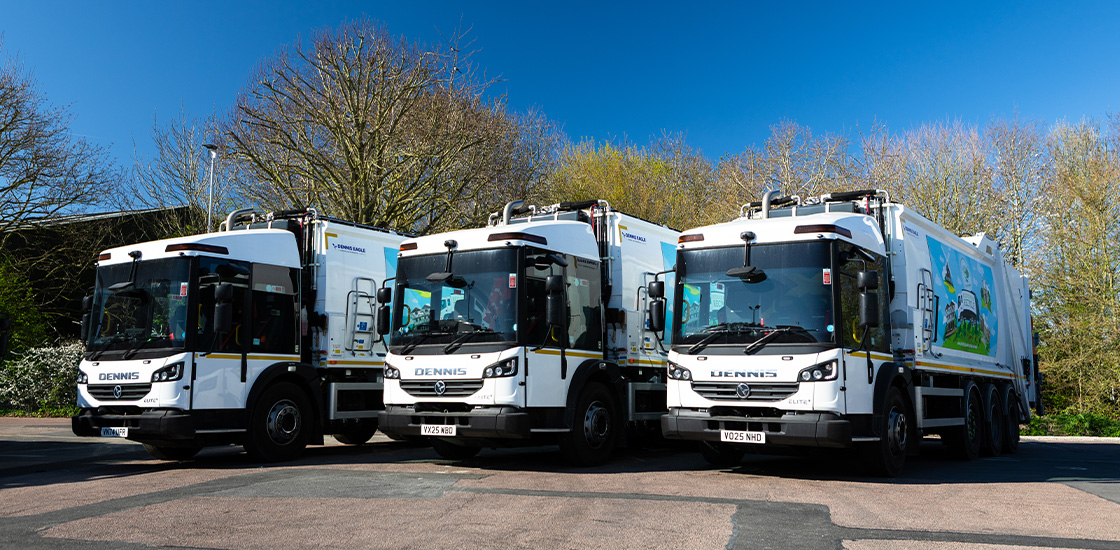Twin Pack is the Only Way in Essex

This thriving, predominantly rural district in north-west Essex encompasses the towns of Saffron Walden, Great Dunmow, Stansted Mountfitchet and Thaxted, alongside around 100 villages and hamlets in between. Despite the rural nature of the region, Uttlesford has found the perfect solution by standardising its fleet with 32-tonne 65/35 Twin Pack Elites, covering 12 key rounds on a fortnightly collection schedule.
Meeting rural challenges with the right vehicles
While rural operators often opt for smaller vehicles, Uttlesford has taken a different approach—bigger is better. “Given the long travel distances across our rural district, with extensive driving, it is crucial to maximise the volume collected per trip, reducing the need for multiple journeys to waste disposal sites, which are often located far away,” says Ben Brown, Director of Environment and Climate Change. “Through thorough research and operational assessments, we determined that Dennis Eagle’s 32-tonne vehicles were the optimal choice for our needs.”

Nicola Case, Dennis Eagle RSM (on the right), with Ben Brown, Director of Environment and Climate Change at Uttlesford Council (on the left).
Operational flexibility and efficiency
Uttlesford benefits from the versatility of the Olympus Twin Pack body, which allows the collection of two different waste streams simultaneously. With separate compartments preventing cross-contamination, one week the larger section is dedicated to residential waste while the smaller section handles food waste. The following week, the larger section is assigned to recycling, while food waste continues to be collected in the smaller compartment. “Twin Pack aligns with our goal of streamlining waste collection across our entire district,” says Brown.
For added efficiency and quieter operation for both residents and crew, Uttlesford opted for the electric version of the OmniDel lifter. And the innovation doesn’t stop there. In line with the introduction of simpler recycling requirements, Uttlesford is exploring ways to integrate trade waste customer collections into the same rounds for greater efficiency. “In rural areas where small villages contain both residential and commercial premises, such as pubs and shops, it makes logistical sense to collect trade waste using the same vehicles,” adds Brown. “This shift requires careful planning around waste charging structures, but we now have the mechanisms in place to implement this efficiently.”

A long-term commitment to service and support
Uttlesford’s relationship with Dennis Eagle spans over 12 years, with procurement cycles consistently confirming the brand as the best choice for cost, reliability and quality. “Over that time, our confidence has only strengthened,” says Brown. “Its vehicles are well-suited to our operational needs and its support services have helped us maintain a reliable and efficient fleet.”
Although Uttlesford conducts maintenance in-house, Dennis Eagle’s service facility—just 15 miles away—provides additional support when needed. “For more complex repairs, Dennis Eagle has been responsive and accommodating, even arranging for vehicle pickup and servicing,” Brown adds.
Drivers, too, appreciate the new vehicles, particularly improvements in the Elite+ cab configuration and visibility. The enhanced safety features—both around the lifters and in terms of visibility—are especially valued in rural areas where long reversing manoeuvres are sometimes required.
A bright future
With more Elite+ deliveries on the way to modernise the fleet, Dennis Eagle remains Uttlesford’s vehicle of choice. “As we continue to refine and expand our waste management strategies, Dennis Eagle remains a trusted partner for effective and sustainable solutions for our district,” concludes Brown.